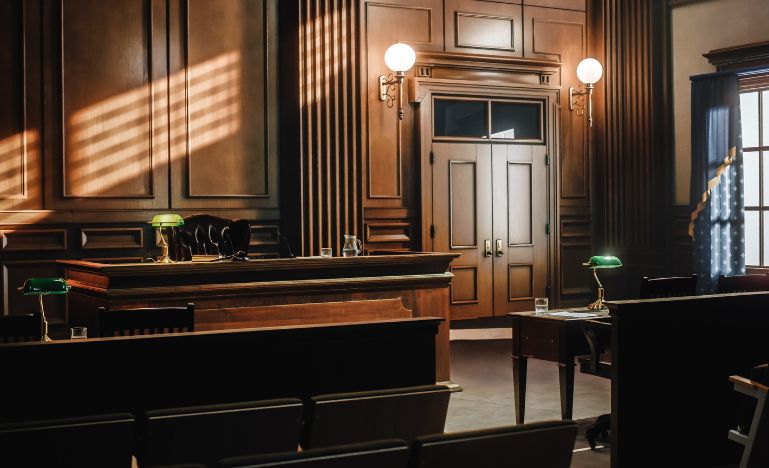A system in danger of becoming irrelevant
Ontario Superior Court Chief Justice Geoffrey Morawetz welcomes proposed sweeping changes to how civil claims are litigated in the province

To a non-lawyer, reviewing the Ontario Superior Court’s civil rules of procedure may not sound like a big deal. But when that civil court system has been in crisis for decades, a review is not only a big deal, it’s necessary.
In the fifth episode of Modern Law: Verdicts and Voices, host Alison Crawford sits down with Ontario Superior Court Chief Justice Geoffrey Morawetz to learn why the province’s civil justice system is in such dire need of reform.
“A major contributor to its problems, in my view, are the rules of civil procedure,” he says.
Introduced about 40 years ago, the rules were meant to provide a roadmap to resolution. Instead, civil proceedings have become bogged down by process to the point the system is in danger of becoming irrelevant.
“They've become a maze that's difficult for many to navigate. As far as I'm concerned, we really do need a complete overhaul of the way civil proceedings are conducted,” Morawetz says.
In the fall of 2023, he and Ontario Attorney General Doug Downey announced a review of the court's civil rules of procedure to address court delays, prohibitive costs and a culture of complacency.
Members of the working group, co-chaired by Ontario Superior Court Justice Cary Boswell and litigator Allison Speigel, have proposed sweeping changes to how civil claims are litigated in the province. These include rejecting the complete discovery model, reforming motions practice, and giving the courts more power to control their own processes.
Morawetz says the current system is very party-driven. Parties that come to court to resolve a dispute get to a trial when they feel they’re ready. However, that process can take years.
“In fact, for some parties, it's in their own interest to drag matters out. Why would you expect parties who begin with a disagreement to be able to agree to make their way through the civil justice system quickly and efficiently? The process naturally just becomes an extension of the battle, and as a result, many disputes languish.”
As far as he’s concerned, the court should instead drive the process.
“It's the court that should say, here's the trial date you're working towards, and that will get parties doing the work they need to do and prevent cases from languishing in the system."
The working group says parties should generally be given a trial date two years out from the matter’s commencement.
“In a world where year after year, 95 per cent of civil cases settle before trial, fixing that trial date will get parties to focus on the issues much quicker,” Morawetz says.
He also likes the proposal that adjourning fixed hearing dates should only be allowed in exceptional circumstances.
“Adjournments are a huge problem in our system. They waste too much court time. Preventing that wastage and holding parties accountable for the court time they have booked is important.”
Greater judicial continuity in case management will also ensure that the judge dealing with the case is familiar with the dispute. Parties will consistently have to appear before that same judge, which Morawetz says will make them more accountable for their actions.
A one-year scheduling conference date, an early fixed trial date, and reducing parties’ ability to adjourn fixed dates will give the court much-needed control of its processes, which it currently lacks.
While the courts are often blamed for trial delays, Morawetz says there’s a pattern of civil case proceedings dragging on through motions, appeals, adjournments, missed deadlines and long periods of inactivity.
“Any new system will have to keep the parties focused and moving towards the end goal, a resolution or a trial -- in the best of all worlds -- within two years.”
Right now, the process can take four to five years.
“Change is difficult, and not everything in this report is going to be received with universal acceptance,” Morawetz says. “There's going to be a lot of debate.”
However, he says people have to examine the civil justice system in its entirety and ask whether it works well.
“My answer to that is it's not really working that well.”
Is it accessible to everybody right now?
"The answer is clearly no,” Morawetz adds.
Tune in to hear more about the review’s proposals, including a shift to an upfront evidence model, going digital, and making the system paperless. There are also ideas about how to make the financial burdens on litigants less onerous.
In this episode, we also talk with Gabriela Ramo about travelling south of the border right now, and lawyer Barbara Jackman joins us for a look at landmark immigration cases at the Supreme Court of Canada.


